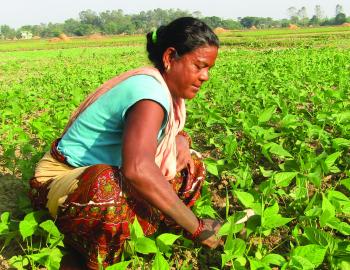Supporting climate compatible agricultural development in Nepal
Supporting climate compatible agricultural development in Nepal
Share this:
Project detail:
Timeframe:
-
Status: Completed
Delivery Partners:
Local Initiatives for Biodiversity Research and Development (LI-BIRD)
Local Initiatives for Biodiversity, Research and Development (LI-BIRD) and ICLEI South Asia, in partnership with CDKN, launched this project in Nepal in July 2019.
Context
This project aims to enhance the capacity of the Ministry of Land Management, Agriculture and Cooperative (MoLMAC) in Nepal to effectively implement and scale up the Environment Friendly Model Agriculture Village Programme (EFMMAVP).
Project Objective
To enhance the capacity of provincial and local government through providing customised knowledge-based support services for mainstreaming Climate Smart Agriculture (CSA) technologies and practices into provincial and local government policies, plans and programmes.
Project activities and outputs
- Organise capacity building trainings on the climate change impacts on agriculture and potential adaptation strategies, focusing on successful CSA models, technologies and practices
- Provide technical support to design and establish demonstration/ learning sites in partnership with the EFMAV programme in each ecological zone
- Organise a travelling seminar targeting elected local leaders and women law-makers
- Produce and publish training materials (CSA training manual in English and Nepali and a short video) to build the capacity of government staff for effective implementation and scaling up EFMAV programme
- Document and publish good practice examples of CSA technologies and practices in English and Nepali, and disseminate to local, provincial and federal governments, academia, law-makers and the media
- Prepare a guideline and provide orientation to EFMAVP staff and local governments to integrate successful CSA models, technologies and practices in local government planning, and budgeting for scaling up CSA
- Participatory assessment on gender and social inclusion, identifying gaps and providing recommendations in selected CSA/CSV model sites

